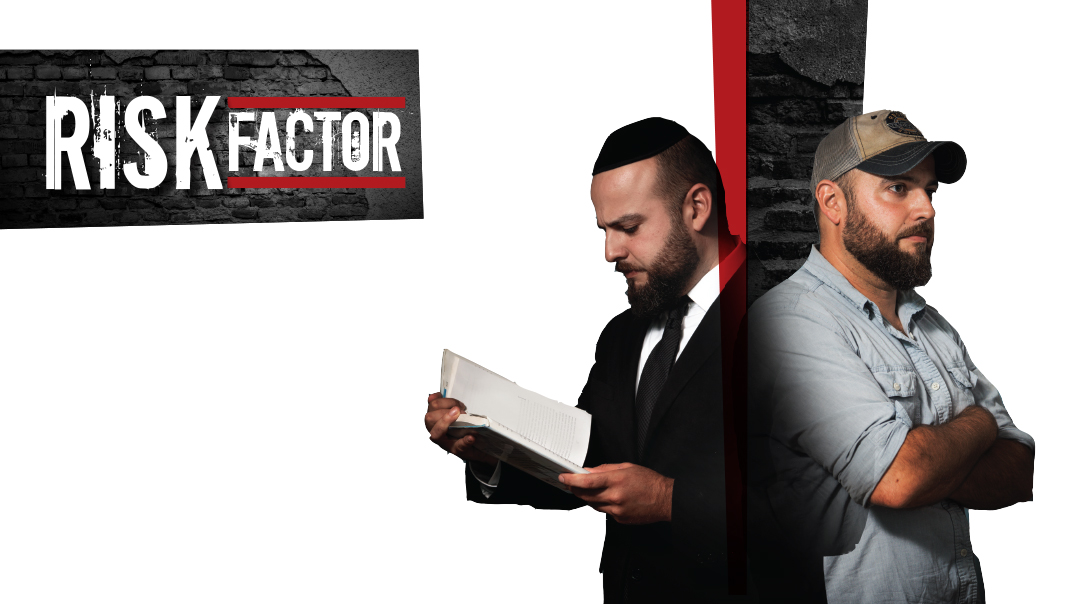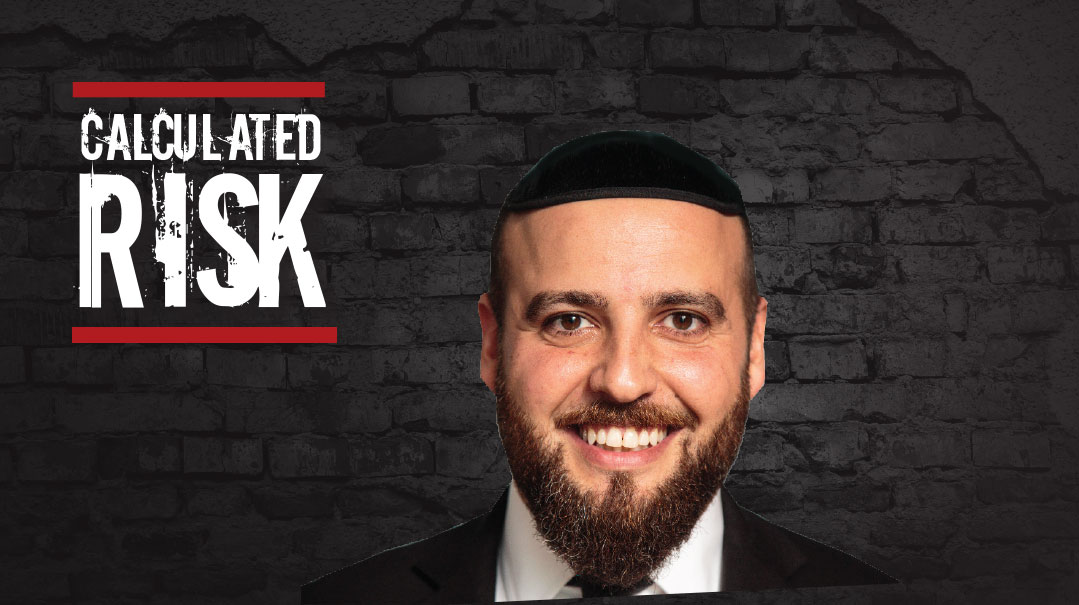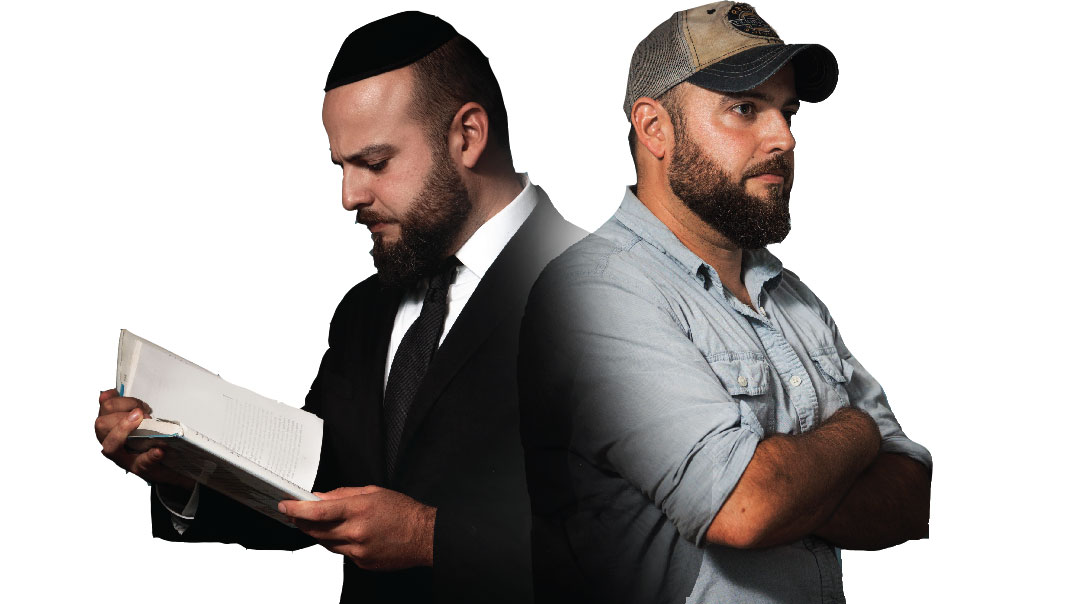The Third Partner

“They’re cowards,” she spat. “And they’re in denial. They need serious hadrachah. He’s using drugs and they act like they don’t care!”

"You want me to just stand by while this happens in my family?” Mrs. Taub said in disbelief. “Just allow this to happen to him and say nothing? I see you’ve never been a mother.”
“The beard kind of gives it away,” I said, trying to defuse the situation. “But I stand by what I said. You are in a supporting role. You need to let go and mind your own business.”
That was the line that had gotten her so riled up to begin with. I was trying to use it as often as I could; hopefully it would become easier to accept.
It didn’t work.
“This is why I don’t believe in therapy!” Mr. Taub announced.
“I don’t even know how to respond to that,” I said, “but anyway, I’m not a therapist.”
He leaned forward like he was interrogating me. “What’s your degree in, again?”
“I don’t have one,” I said flatly.
I’m not usually this confrontational, but it was important to get the Taubs riled up and yelling at me. Let them get it out of their system. They wanted to be heard and had been biting their tongues for too long. Better they fight with me than… certain other people.
Mr. Taub pointed dramatically to me. “He’s not even a therapist!” he told his wife.
I opened my mouth to point out the inconsistency in Mr. Taub’s relationship with therapy, but his wife held up her hand.
“You can’t expect a mother to let this behavior go without saying anything,” she asserted.
“That may be true, but it’s irrelevant,” I said.
“How is it irrelevant, exactly?”
“Because you’re not his mother.”
“I’m his grandmother!”
“I understand that, but you need to be respectful of your daughter and her husband.”
“They’re cowards,” she spat. “And they’re in denial. They need serious hadrachah. He’s using drugs and they act like they don’t care!”
“That’s the problem,” I said.
“I know it is! So what do we do about it?”
“No,” I said. “The fact that you feel that their behavior is cowardly is the problem. It’s not the direct issue with your grandson, but it is the issue with your relationship with your daughter and son-in-law. Their son is not doing what you want. He’s not doing what they want, either. But they’re giving him space and support to figure himself out. I don’t know them and I don’t know your grandson and I don’t know if what they’re doing is the right thing, but what I do know is that you won’t change their minds or help in any way by forcing control the way you’re trying to do. You need to be accepting and understanding. It’s one of the hardest things for a person do,” I acknowledged, “especially for a parent.”
“It’s called being irresponsible,” Mr. Taub muttered.
“You can call it that,” I said. “I call it emunah.”
He looked at me sharply.
“There are three partners in raising a child,” I reminded him. “Mommy, Abba, and Hashem. If we try micromanaging every aspect of a child’s life, we don’t leave room for what the Ribbono shel Olam is providing and has intended for the child. Allowing a child the respect and support they need during their journey is not irresponsible, it’s trusting that Hashem knows what He’s doing. It takes courage. It takes emunah.”
They fell silent.
Mr. and Mrs. Taub weren’t control freaks. They were just missing a key point in their approach to the issue — that certain things are out of our control. It’s painful, but sometimes we need to be spectators. Cheer when we’re supposed to and cry when we’re supposed to.
“So you’re saying we should do nothing,” Mrs. Taub finally said.
“I’m saying to make room for Hashem. Let go a little. Be supportive of your daughter and her husband. You might even find that will make them more willing to listen to you and your concerns.”
It was quiet again. Then Mrs. Taub spoke. “Sorry,” she said. “I can’t do that.”
*****
It was over a year before I heard from the Taubs again. I was with a client and my phone kept buzzing; although I try not to check it when I’m with someone, especially someone I’m working with, especially if it’s the first time I’m meeting them. But the buzzing persisted; someone was really trying to reach me. The distraction was becoming too much.
I apologized to the couple sitting across from me and pulled out my phone. Mrs. Taub’s name was blinking on my screen. I turned off the phone and put it to the side.
“Something important? You can answer,” said the man sitting across from me.
I smiled. “No, it’s been over a year since I’ve spoken to that person, I’m sure it can wait another five minutes. Besides we’re at an important milestone here and I don’t want to lose the momentum.”
I looked for a moment at Mr. and Mrs. Pollack. It was hard to believe how different they were from the Taubs. Although I’d only just met them, and they’d told me as soon as they walked in that they couldn’t afford to pay, it was a pleasure to be working with them.
After they left, I returned Mrs. Taub’s call.
“I know it’s been a while,” she said. “We tried everything. From segulos to practically begging them. We had everyone we could think of call and plead our case. Nothing worked. About a month ago we realized that your approach was the only thing we didn’t try.” She started sobbing. “Baruch Hashem it’s been working. We still think they need hadrachah but we understand and appreciate what they’re going through now that we’re being more understanding in our communication. Hashem really is running this show. It was stupid to think otherwise.”
“I’m happy to hear that. I have a feeling it will work out,” I said.
“Rabbi, my husband and I are not wealthy but we have some money we have been wanting to give as a zechus for our children and grandchildren. I’m mailing you a check. I want you to use it to help people who can’t afford to pay.”
I thanked her around the lump in my throat.
As I hung up, a text from the Pollacks came through.
Thank you so much for your time today. We’re going home confident in our “third partner” and a lot more understanding of our son. We really hope to be able to pay you one day.
I glanced upward toward the third partner and started laughing. I felt like He was laughing too, an inside joke. I would never be able to tell this one to the Taubs or the Pollacks, so I just said it aloud to my empty office.
“It’s okay, Bubby just paid in full.”
(Originally featured in Mishpacha, Issue 838)
Oops! We could not locate your form.










